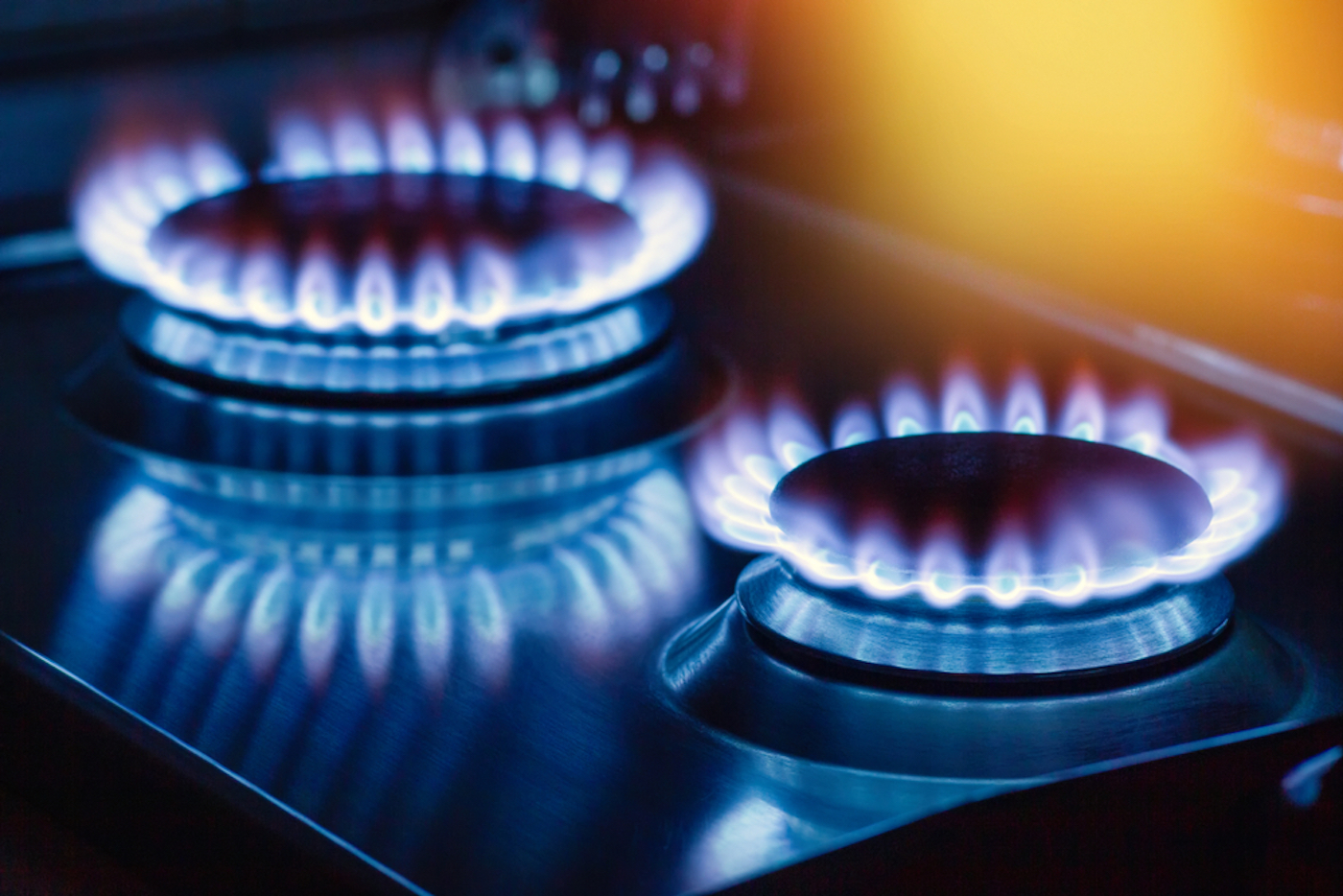
What does an RV propane gas leak smell like? Photo credit: Shutterstock
How To Detect RV Propane Leaks
RVers use propane for cooking, heating, and even running the RV refrigerator. There are some great benefits to using propane in our RVs. Propane is abundant, affordable, and it burns cleanly. In addition, propane is extracted, produced, and distributed throughout North America, so it’s easy to find a retailer.
While we use propane in its gas form, it is stored differently. Propane is compressed and stored in its liquid state. Liquified propane gas (LPG) is propane gas that has been compressed into a liquid state. When we buy a cylinder of propane, it is in a liquid form that expands to a gas when we open a valve.
What does a propane gas leak smell like?
On its own, propane is colorless, odorless, and non-toxic. Even though it’s non-toxic, propane gas poses a significant health hazard to both humans and pets. If it is inhaled, propane can asphyxiate us very quickly.
Recognizing this potentially deadly health hazard, propane manufacturers began to add an unpleasant-smelling odor to propane. The added odor is there to let you know that there is a gas leak. A propane gas leak will either smell like rotten eggs, or it will have a skunky smell, depending on the person.
What to do if you detect a propane gas leak smell
If you smell rotten eggs or a skunky smell inside your RV, there are a few things you should do immediately.
- Get everyone out of the RV
- Close the propane supply valve
- Shut off all appliances
- Open windows
- Get out of the RV
Symptoms of propane exposure from a gas leak
It’s important to know the symptoms of propane exposure so you can determine if immediate medical help is needed.
Inhaled propane gas molecules expand in the lungs and quickly replace the oxygen molecules that the body needs to function. The symptoms of propane exposure are due to asphyxiation due to oxygen deprivation.
Get medical help if you have any of these symptoms:
- Nausea
- Dizziness
- Headaches
- Drowsiness
- Coughing
- Irregular heartbeat
- Pain or numbness in limbs
- Convulsions
- Diarrhea
- Loss of consciousness
- Asphyxiation
- Heart failure
First aid for propane exposure symptoms
When someone is showing any of the symptoms described above, it’s important to get them into fresh air and get medical help as soon as possible. If you can smell a propane gas leak, and you or someone else is showing symptoms of propane exposure, here is what you need to do immediately. (source)
- Make sure the area is safe by shutting off the propane supply at the valve.
- Get the patient outside into fresh air.
- Call 911 and seek medical help immediately.
How to avoid RV propane leaks
When stored and transported properly, propane is one of the safest fuels we can use while RV camping. Here are some tips to help you avoid propane leaks in your RV.
Don’t use out-of-date propane cylinders.
Check the manufacture date of your propane cylinders. There is a date of manufacture stamped on the collar of your propane cylinder, which will tell you the year and month when it was manufactured. If your cylinder is more than 10 years old, you’ll need to retire it or have it inspected and recertified.
Inspect your RV propane system annually.
Whenever we travel in our RVs, everything is getting constantly jostled and bumped around. This includes all the components of the propane gas system too. Connections can loosen and/or hoses can wear out and get damaged from use or age. Having an annual propane system inspection performed by a certified RV technician is relatively cheap insurance against potential disasters.
Keep your RV propane leak detector up-to-date.
Newer model RVs come with a propane leak detector that sounds an audible alarm when there is a propane leak. Many RVers may not realize that propane detectors have a limited lifespan. It’s important to regularly check the batteries as well as replace your RV propane leak detector every five years.
Make sure you keep track of all your RV maintenance and repairs with an online tool such as RV LIFE Maintenance. Not only can you keep all of your documents in one place, but you’ll also receive timely reminders when maintenance is due to help you avoid costly repairs and potentially serious accidents.
Related articles:
- How To Detect A Dangerous RV Propane Leak
- 7 Things You Need To Know About Propane Safety
- Why Is My RV Propane Alarm Going Off Randomly?

It happened to me last winter, a stove burner was left opened probably after cleaning the stove.
I was convinced the bad smell was coming from the gray water tank. It took almost 2 days before we found out what was really the problem…